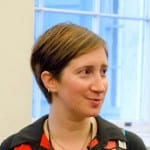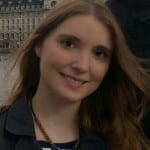Team Alumni
Past Team Members
Since the project began in February 2012, we have seen a number of fantastic team members come and go, usually to move on to bigger and better things! This page is dedicated to past team members and the contribution they have made to shaping the Researchers in Museums project.
- Tzu-i Liao, Department of Greek and Latin
- Misha Ewan, Department of History.
- Niall Sreen, Center for Multidisciplinary and Intercultural Inquiry
- Dr Suzanne Harvey, Department of Anthropology
- Felicity Winkley, Institute of Archaeology.
- Rita Dal Martello, Institute of Archaeology.
- Dr Sarah Chaney, Center for the History of Psychological Disciplines.
- Citlali Helenes González, Institute of Child Health and Department of Mechanical Engineering.
- Lisa Plotkin, Department of History
- Alicia Thornton, Department of Infection and Population Health
- Katie Donington, Department of History
- Lara González, Department of Archaeology.
- Ann Liljas, Institute of Epidemiology and Health.
- Stacy Hackner, Institute of Archaeology
- Ruth Blackburn, Departments of Mental Health Sciences and Primary Care & Population Health
- Gemma Angel, History of Art Department and the Science Museum,
- Kevin Guyan, Department of History
- Sarah Savage, Department of History.
- Anna Rudnicka, Institute of Sustainable Heritage.
*************************************************************
Dr Stacy Hackner
UCL Institute of Archaeology
I graduated with a PhD from the Institute of Archaeology in 2017, focusing on bioarchaeology and biomechanics and using the collections of the British Museum. I examined differences in tibial bone shape between Sudanese farming and nomadic groups. I am currently teaching in the UCL Arts & Sciences department.
Follow her on Twitter: @stacytg
Read Stacy’s blog posts.
*************************************************************
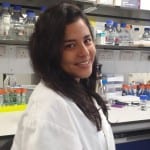 Citlali Helenes González
Citlali Helenes González
UCL Institute of Child Health and Department of Mechanical Engineering
I am a second year PhD student based in the Institute of Child Health and the department of Mechanical Engineering. I study human neural differentiation and development and try to differentiate human neural stem cells into neurons and other brain cells.
Read Citlali’s blog posts.
*************************************************************
UCL Institute of Archaeology
My research investigates the basis of early agriculture in Yunnan, a region located in Southwest China, and how the shift to agriculture affected the existing cultural practices of the neighbouring areas (modern Laos, Vietnam, India, Myanmar, etc). I employ archaeobotanical analysis of ancient plant remains to reconstruct past subsistence, as well as functional studies of ceramic vessels and stone tools used in food processing and cooking practices.
Read Rita’s blog posts.
*************************************************************
Anna Rudnicka
Institute of Sustainable Heritage
I investigate how visitors to galleries, museums, libraries and other heritage spaces can help scientists gather data on preventative management of material heritage. This requires constant data collection, for example of the temperature, humidity, dust deposition, pollutant concentration, or colour fading of environments and objects. The main aim of my PhD is to establish whether quality of ‘smartphone data’ is sufficient to aid preventative management.
Read Anna’s blog posts.
*************************************************************
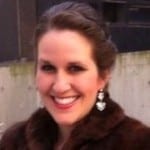 Sarah Savage
Sarah Savage
UCL Department of History
Sarah graduated with a PhD from the Department of History studying history of medicine, specializing in epidemics and infectious disease in the early twentieth century. Her research focused on how physicians, neurologists, and infectious disease specialists between 1917-1930 identified, categorized, and treated the neurological movement disorder Encephalitis Lethargica.
Follow me on Twitter: @viralinsanity
Read Sarah’s blog posts.
*************************************************************

Niall Sreenan
UCL Centre for Multidisciplinary and Intercultural Inquiry
Niall graduated with a PhD in Comparative Literature. His research explored the complex and often fraught relationships between science and literature, specifically focusing on Darwinian biological theory and literary narratives, beginning from the mid-to-late 19th Century in the wake of the publication of Darwin’s On the Origin of Species.
He was a founding member of the Society for Comparative Critical Inquiry at UCL and an editor of the society’s postgraduate Journal Tropos. Additionally, he worked as a postgraduate representative for the British Comparative Literature Association.
Twitter: @LatentLaziness
Read Niall’s blog posts.
*************************************************************
Lara González
UCL Institute of Archaeology
Lara was PhD student at the Institute of Archaeology. Her project traced the origins of bread cultures in the Near East and Europe and focused on Neolithic Çatalhöyük (Turkey).
Read Lara’s blog posts.
*************************************************************
 Kevin Guyan
Kevin Guyan
UCL Department of History
Kevin worked as Student Engagement Coordinator between 2014 and 2016. He completed his PhD and left the team in September 2016. He now works as a Research Officer for Equality Challenge Unit, an organisation that works to further and support equality and diversity for staff and students in higher education across the UK and in colleges in Scotland.
Kevin’s research explored the relationship between masculinities, planning knowledge and domestic space in Britain in the middle decades of the twentieth century.
Follow me on Twitter @kevin_guyan
Read Kevin’s blog posts.
*************************************************************
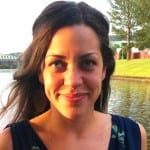 Misha Ewen
Misha Ewen
UCL Department of History
Misha is completing her PhD at UCL in Spring 2017, before taking up a research fellowship at the Huntington Library in California. There she will continue work on the history of colonisation in North America, exploring the political and cultural interests of investors in the Virginia Company and how they influenced settlement in Jamestown.
Her research focuses on the ways that the English colonisation of Virginia in 1607 influenced political life and culture in England, and prompted individuals to think about their society – often termed the ‘commonwealth’ – in different ways. From the transportation of orphans to the colony, disputes about the tobacco trade, pamphlets, plays and church collections to build schools in the colony, she is exploring how individuals from all areas of society were brought into dialogue with the colonial project.
Twitter: @mishaewen
Read Misha’s blog posts.
*************************************************************
Tzu-i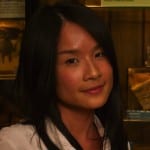 Liao
Liao
UCL Department of Greek and Latin
I am a final year PhD student in the Department of Greek and Latin at UCL, interested in how different ways of speaking result in different ways of meaning and thus reflect different purposes of writing/speaking. My research focuses on ancient Greek and Roman texts, and in particular, classical Greek oratory and historiography. My current project investigates how the writing/speaking conventions of classical Athenian political speeches are realized linguistically – in other words, how the genre is produced and defined by the uses of structural and grammatical constructions.
Read Tzu-i’s blog posts.
*************************************************************
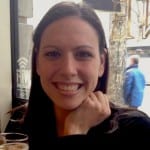 Lisa Plotkin
Lisa Plotkin
UCL Department of History
Lisa finished her PhD and left the team in 2015 to pursue a research position at the National Federation of Womens’ Institutes. She was Engagement Coordinator for two years, and was integral to the Foreign Bodies and Stress projects.
At UCL, she specialized in the nineteenth century social history of women and medicine throughout the British Empire. Her research focused more specifically on the experiences of women in various curative sites in Britain and India from 1860 until the beginning of the twentieth century.
Read Lisa’s blog posts.
*************************************************************
Dr. 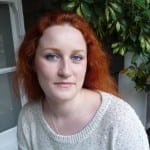 Gemma Angel
Gemma Angel
UCL History of Art Department and the Science Museum, London
Original Team Coordinator Gemma Angel left the team in September 2013, following the successful completion of her PhD at UCL’s History of Art Department. Gemma was project leader and co-curator on our first major project Foreign Bodies, a cross-collections exhibition at UCL which ran from March 18th until June 20th 2013.
Since completing her PhD, Gemma has worked at the University of Leeds Humanities Research Institute (LHRI) on a 6 month Wellcome Trust ISSF Postdoctoral Fellowship in the medical humanities, and was a Junior Research Fellow at UCL’s Institute of Advanced Studies (IAS) from 2015-2016, working on medical museum collections of human remains and the 2004 Human Tissue Act (HTA). She also convened the Bodily Matters: Human Biomatter in Art seminar series and international conference in 2016, and was most recently a Society Fellow at Cornell University Society for the Humanities (SHUM), working on the focal theme Skin from 2016-2017.
She is currently working on her first book, Speaking Scars: Tattoos, Crime & Collecting, based on her doctoral work on the Wellcome Collection of 300 preserved tattoos.
Find out more about Gemma’s research on the following sites www.lifeand6months.com and www.thanatocorpus.com.
Follow Gemma on Twitter: @lifeand6months
Read Gemma’s interview with UCL Portico magazine on preserved tattoos in UCL’s pathology collections, or find her blog posts for UCL Researchers in Museums on a range of objects and collections here.
*************************************************************
UCL Institute of Archaeology
Based at UCL Institute of Archaeology, I am currently researching the attitudes of metal detector users in England. I am interested in what proportion of users feel attached to the landscape in which they detect, and how this attachment may impact on their feelings towards finds discovered there.
Read Felicity’s blog posts.
*************************************************************
Ann Liljas
UCL Institute of Epidemiology & Health
I look at the burden and determinants of sensory impairment in older adults. My research is based on two large established on-going national cohorts at UCL: The British Regional Heart Study (BRHS) and the English Longitudinal Study of Ageing (ELSA).
Twitter: @AnnLiljas
Read Ann’s blog posts.
*************************************************************

Ruth Blackburn
UCL Departments of Mental Health Sciences and Primary Care & Population Health
Ruth was a member of the Engagement Team from February 2013 until June 2014, contributing to our Landscape and Movement events. She is continuing to pursue her doctoral research at UCL and will continue to provide input into the Student Engager project.
I am a second year PhD student working with the departments of Mental Health Sciences and Primary Care and Population Health on the PRIMROSE program, which investigates cardiovascular disease in people with severe mental illness. The main focus of my PhD is to explore the extent to which differences in cardiovascular health and disease prevention exist between people with, or without, severe mental illness.
Follow me on Twitter: @mind_the_gap___
Read Ruth’s blog posts for UCL Researchers in Museums here.
*************************************************************
 Dr. Suzanne Harvey
Dr. Suzanne Harvey
UCL Department of Anthropology
One of the original team members, Suzanne was awarded her doctorate from UCL in 2014. She was a Co-curator of the Foreign Bodies exhibition and a very popular engager in all of the museums.
I am a biological anthropologist, studying the evolution of human behaviour and communication through the study of non-human primates. My fieldwork is carried out at Gashaka-Gumti National Park in Nigeria, where I have been studying infant socialisation in baboons, including their ability to manipulate adults, and whether this behaviour is affected by the presence of an audience.
Follow me on Twitter: @SuzeMonkey
Read Suzanne’s blog posts for UCL Researchers in Museums here.
*************************************************************
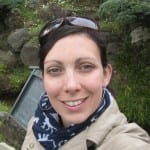 Alicia Thornton
Alicia Thornton
UCL Department of Infection and Population Health
Having worked with the original team from the inception of the project until June 2013, Alicia was one of the curators of our Foreign Bodies exhibition, making a fantastic contribution to a very successful project. Alicia completed her doctoral work at UCL in 2015 and is now working full time as a public health specialist, specialising in HIV and sexual health.
Follow me on Twitter: @AliciaThornton3
Read Alicia’s blog posts for UCL Researchers in Museums here.
***********************************************************
 Dr. Sarah Chaney
Dr. Sarah Chaney
UCL Centre for the History of Psychological Disciplines
In April 2013, team member Sarah Chaney was awarded her doctorate in History of Medicine, which meant that her time with us came to an end. Sarah was lead curator on our first major project Foreign Bodies, a cross-collections exhibition at UCL which ran from March 18th until June 20th 2013.
Her research focused on asylums around the turn of the twentieth century (c. 1880 – 1910) and utilised the archives of the Bethlem Royal Hospital (the original ‘Bedlam’, founded 1247). She is currently working at the Bethlem Museum.
Follow me on twitter: @kentishscribble
Read Sarah’s blog posts for UCL Researchers in Museums here.
************************************************************
Dr. Katie Donington
UCL Department of History
Another of our original team members, Katie Donington left us at the end of 2012, and has now gone on to postdoctoral research on the UCL Legacies of British Slave-ownership Project.
Her PhD was with the ESRC funded Legacies of British Slave-Ownership Project in the Department of History at University College London. This ongoing project is using the 1838 Slave Compensation Registers to identify and build a database of the slave-owners resident in Britain at the end of slavery in the Caribbean. A particular research interest was the relationship between slavery, representation, memory and national identity.
Read Katie’s blog posts for UCL Researchers in Museums here.
 Close
Close





















